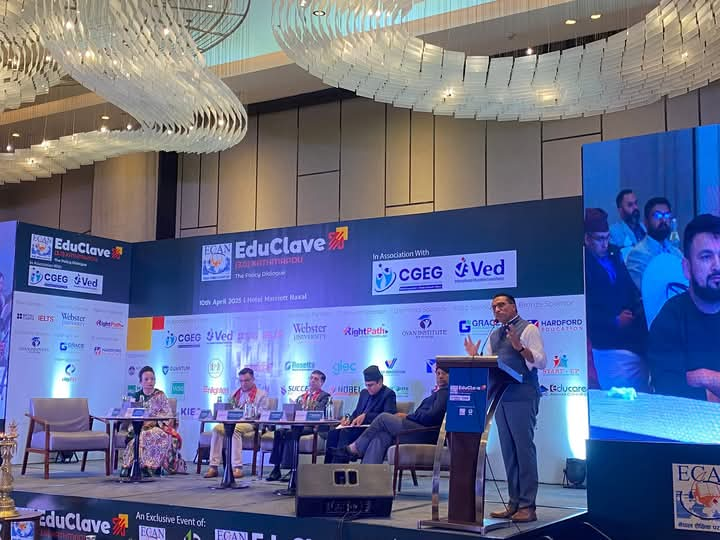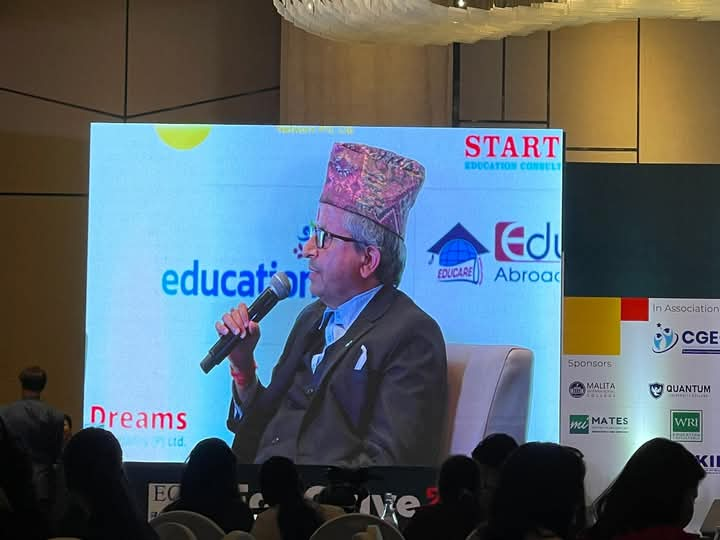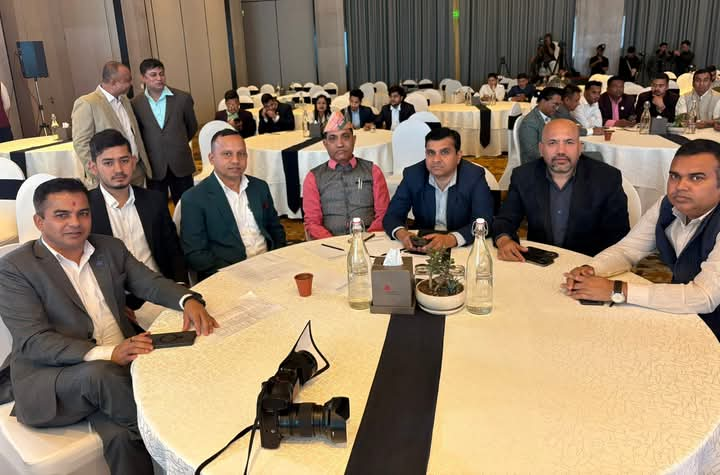
EDUCAST, Organized by the Education Consultancy Association of Nepal (ECAN), Educlave 3.0 concluded on Thursday in Kathmandu with resounding success. The grand event focused on the dynamics of foreign education, the need for reforms in Nepal’s education system, and opportunities for international academic collaboration. The program witnessed the presence of key political figures, education experts, and stakeholders from across the sector.

Speaking as the chief guest, Hon. Damodar Bhandari, Minister for Industry, Commerce and Supplies, emphasized that the increasing number of Nepali students going abroad should not be seen as a negative trend but as an opportunity. “Rather than being alarmed by student outmigration, we must explore ways to link it with national development,” he said, noting that the government is in the process of formulating a strategic approach to address this.
Minister Bhandari added that Nepal must find effective ways to utilize the skills, knowledge, and experience that students gain abroad in the nation-building process.


CPN-UML Deputy General Secretary Pradeep Gyawali blamed the lack of quality education and opportunities in Nepal for driving youth overseas. He stressed the need for clearer policies, better systems, and improved infrastructure to retain students within the country.
Swarnim Wagle, Vice President of the Rastriya Swatantra Party (RSP), stated that the current education system is outdated and emphasized the urgent need to improve the quality of education to reduce student outflow. RSP Chief Whip Santosh Pariyar echoed this sentiment, saying that Nepal’s education system has failed to produce employable graduates, pushing youth to seek a future abroad.
ECAN President Shesh Raj Bhattarai addressed the gathering by stating that foreign education itself is not a problem. “The real issue arises when students are unable to contribute to their country after studying abroad,” he said. “If they return with skills and knowledge, and there is a clear government policy to engage them, foreign education can become a strength.”
Rajendra Baral, President of the Nepal Educational Consultancy Federation, expressed that Nepal could become a global education hub. “We should not only send students abroad but also create an environment to bring international students to Nepal,” he suggested, urging the government to guarantee educational visas, accommodation, and security for foreign learners.
ECAN First Vice President Andrew Paudel described educational consultancy as a gateway to learning beyond the classroom. “When students go abroad, they gain exposure, skills, and a new perspective. We guide them into that world,” he said.
Former ECAN President Prakash Pandey highlighted the UK as a top destination for higher education and encouraged Nepal to work towards attracting international students as well. “The state must create an enabling environment for this to happen,” he said.
Shiva Kumar Sapkota, spokesperson for the Ministry of Education, Science, and Technology, admitted to weaknesses in the No Objection Certificate (NOC) distribution system. “To this day, the ministry does not have exact data on how many students have gone abroad. This is a shameful state of affairs, but such discussions help us improve,” he said. According to him, more than 500,000 students have pursued foreign education after completing Grade 12.
Dr. Ramu Paudel, Executive Director and Spokesperson of Nepal Rastra Bank, challenged the belief that foreign education weakens the national economy. “The country can benefit in the long term from the human capital developed abroad. Just looking at the outflow of billions of rupees doesn’t give the full picture,” he said.
Speakers collectively emphasized the need to view foreign education not as a problem but as an opportunity. They called for strategic policy-making to reintegrate returnee students into national development. The event also highlighted the need to attract international students to Nepal by offering clear visa policies, quality facilities, and safety assurances. Additionally, it underscored the importance of evidence-based analysis of the economic impact of foreign education.
In essence, Educlave 3.0 served as a critical platform for discussing the policies, challenges, and potential of Nepal’s educational consultancy sector, showing that it’s time to view foreign education through a broader and more constructive lens.
Write your comment